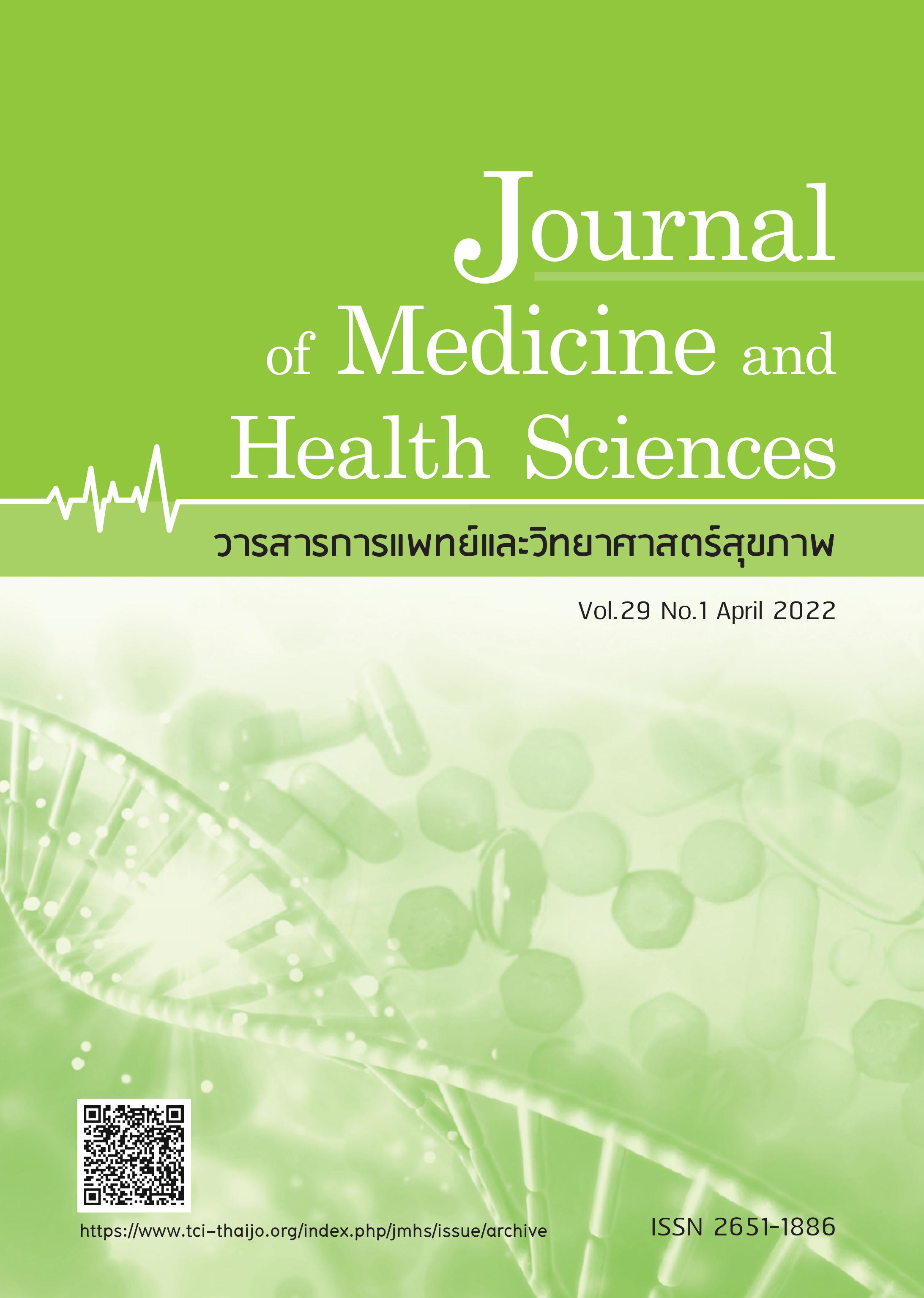Effect of quercetin supplementation on serum uric acid in obese male patients
Keywords:
quercetin, uric acid, hyperuricemia, obeseAbstract
Abstract
Hyperuricemia can lead to gouty arthritis and kidney stones and is also associated with cardiovascular disease. However, the treatment guidelines have not suggested ways to lower uric acid agents in healthy people. Therefore, various phytochemicals are used to replace them, such as quercetin, which inhibits the xanthine oxidase enzyme and to enhance the excretion of uric acid through the kidneys. Therefore, the objective of this study was to study the effect of quercetin on serum uric acid levels in obese male patients. The randomized, double blinded, controlled trial was conducted with 43 obese male patients, aged between 25-60 years old, and with a baseline serum uric acid level higher than 5.2 mg/dl. The serum uric acid level was measured before and after four weeks of taking a 500 mg/day quercetin supplement. The adverse effects of kidney and liver function were monitored by serum creatinine, aspartate aminotransferase and alanine aminotransferase. The results found that after four weeks, the serum uric acid levels were significantly reduced by 0.05 mg/dl (p-value 0.012, 95%CI = -0.88, -0.12) without any adverse effects on kidney and liver function. In conclusion, quercetin is vital in terms of reducing serum uric acid levels and preventing the diseases associated with hyperuricemia.
References
Lohr JW. Hyperuricemia: medscape; 2018 [Available from: https://emedicine. medscape.com/article/241767-clinical.
Matsuura F, Yamashita S, Nakamura T, et al. Effect of visceral fat accumulation on uric acid metabolism in male obese subjects: visceral fat obesity is linked more closely to overproduction of uric acid than subcutaneous fat obesity. Metabolism 1998;47:929-33.
Feig DI, Kang D-H, Johnson RJ. Uric acid and cardiovascular risk. N Engl J Med 2008;359:1811-21.
FitzGerald JD, Dalbeth N, Mikuls T, et al. 2020 American college of rheumatology guideline for the management of Gout. Arthritis Rheumatol 2020;72:879-95.
Ay M, Charli A, Jin H, et al. molecular mechanisms underlying protective effects of Quercetin against mitochondrial dysfunction and progressive dopaminergic neurodegeneration in cell culture and mitoPark transgenic mouse models of parkinson’s disease. J Neurochem 2017;14:766-82.
Zhang C, Wang R, Zhang G, et al. Mechanistic insights into the inhibition of quercetin on xanthine oxidase. Int J Biol Macromol 2018;112:405-12.
Renugadevi J, Prabu SM. Quercetin protects against oxidative stress-related renal dysfunction by cadmium in rats. Exp Toxicol Pathol 2010;62:471-81.
Shi Y, Williamson G. Quercetin lowers plasma uric acid in pre-hyperuricaemic males: a randomised, double-blinded, placebo-controlled, cross-over trial. Br J Nutr 2016;115:800-6.
Egert S, Bosy-Westphal A, Seiberl J, et al. Quercetin reduces systolic blood pressure and plasma oxidised low-density lipoprotein concentrations in overweight subjects with a high-cardiovascular disease risk phenotype: a double-blinded, placebo-controlled cross-over study. Br J Nutr 2009;102:1065-74.
Hu Q-H, Zhang X, Wang X, et al. Quercetin regulates organic ion transporter and uromodulin expression and improves renal function in hyperuricemic mice. Eur J Nutr 2012;51:593-606.
Nicholls A, Scott JT. Effect of weight-loss on plasma and urinary levels of uric acid. Lancet 1972;2:1223-4.
Serban MC, Sahebkar A, Zanchetti A, et al. Effects of Quercetin on blood pressure: A systematic review and meta-analysis of randomized controlled trials. J Am Heart Assoc 2016;5:1-16.
Downloads
Published
How to Cite
Issue
Section
License

This work is licensed under a Creative Commons Attribution-NonCommercial-NoDerivatives 4.0 International License.



